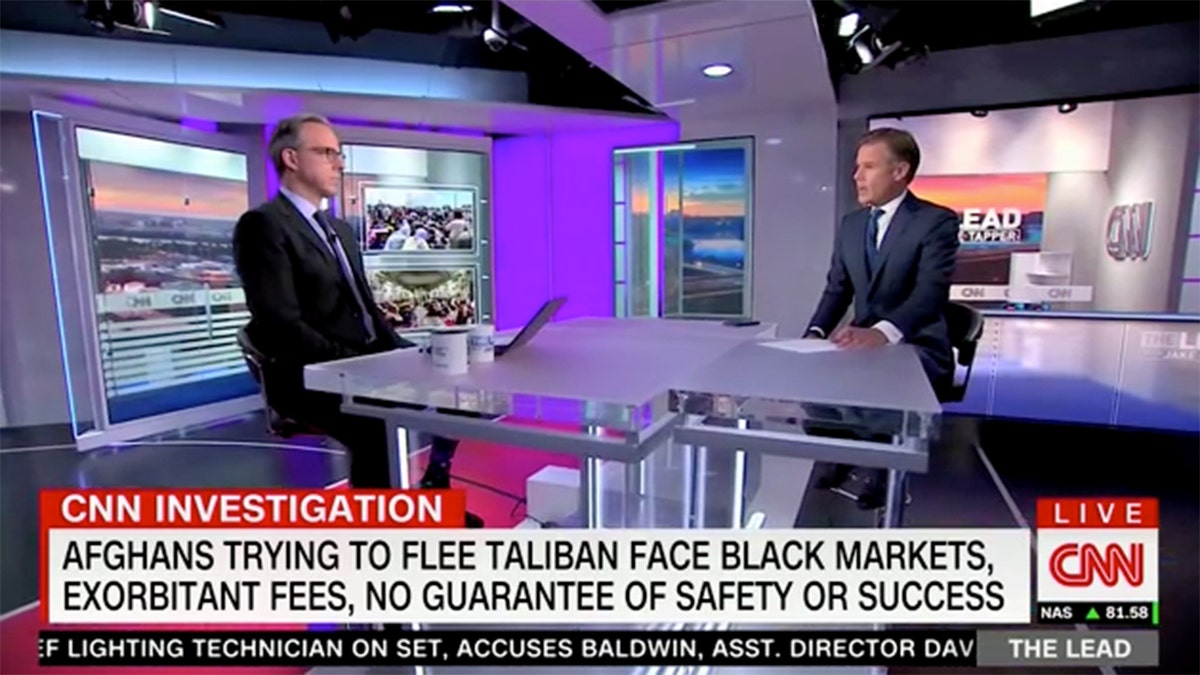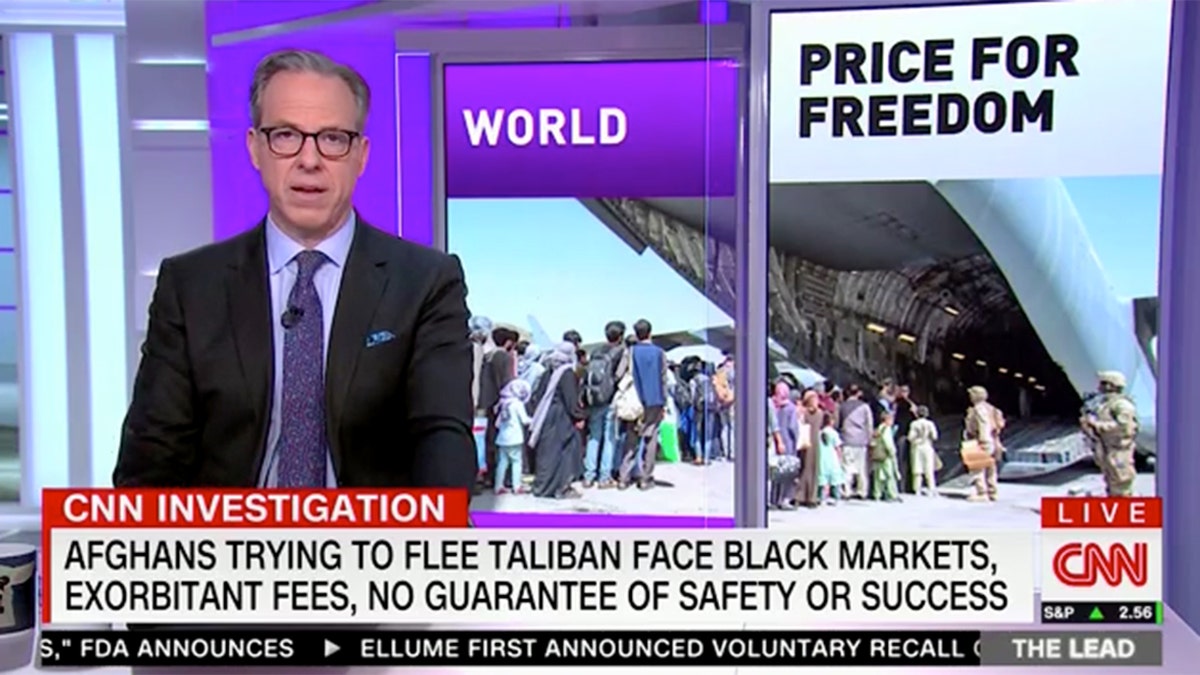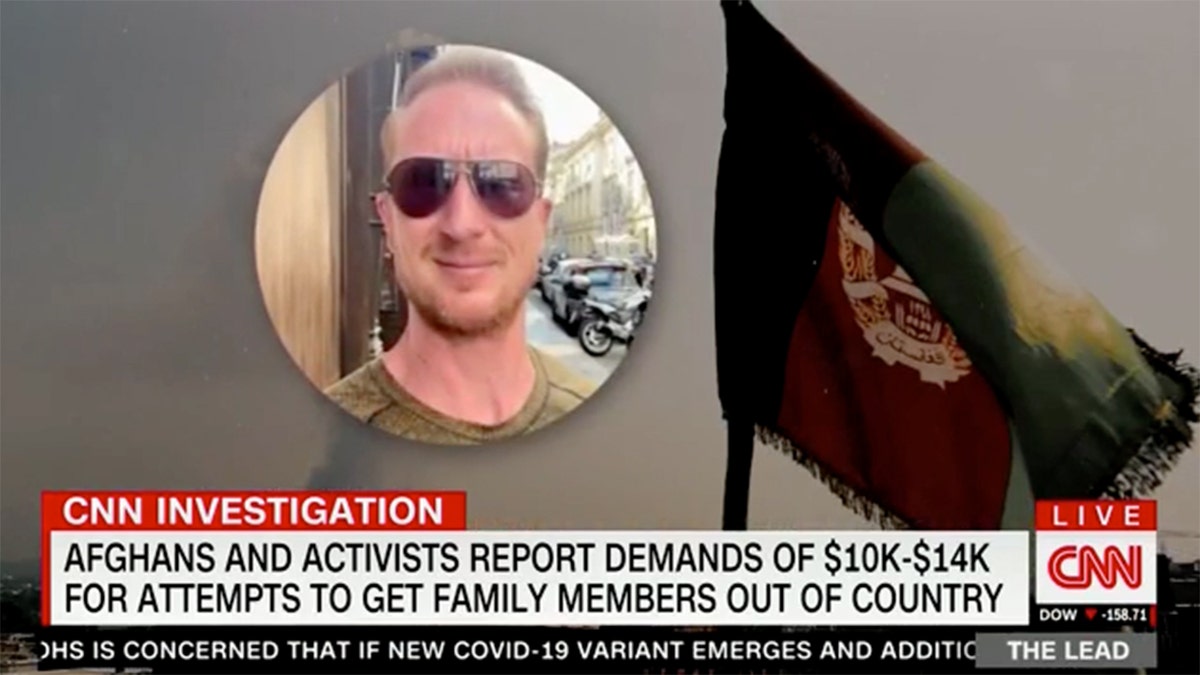CNN's Dana Bash admits she prepped more for Donald Trumps reactions than President Biden's for first debate
CNNs Dana Bash said Monday during an interview on "The View" that she and Jake Tapper prepped more for Donald Trumps reactions during the first debate than they did for President Biden.
CNN editors called the segment at the center of a high-stakes defamation lawsuit an "infernal story" that wasn’t ready for air, but the network aired it anyway, according to the plaintiff’s attorney, who received internal CNN documents.
U.S. Navy veteran Zachary Young alleges that CNN smeared him and his security consulting company, Nemex Enterprises Inc., by implying it illegally profited when helping people flee Afghanistan during the Biden administration's military withdrawal from the country in 2021. Young believes CNN "destroyed his reputation and business by branding him an illegal profiteer who exploited desperate Afghans" during a Nov. 11, 2021, segment on CNN’s "The Lead with Jake Tapper."
Summary judgment oppositions and outstanding CNN financial documents were swapped late Friday evening. Young’s attorney noted that a judge previously ruled the plaintiff has proffered enough evidence to seek punitive damages, so CNN must "convince the court that it has new evidence" in order to stop Young’s case.
"Of course, CNN has produced no such evidence," Young’s lead counsel Vel Freedman wrote in a court filing obtained by Fox News Digital.

CNN host Jake Tapper and correspondent Alex Marquardt during the segment at the center of a defamation lawsuit. (CNN/Screenshot)
"Instead, its brief regurgitates all the evidence this Court and the First District already considered," Freedman continued. "CNN’s motion for summary judgment should be denied."
The CNN segment at the center of the suit, which was shared on social media and also repackaged for CNN's website, began with Tapper informing viewers that CNN correspondent Alex Marquardt discovered "Afghans trying to get out of the country face a black market full of promises, demands of exorbitant fees, and no guarantee of safety or success."
Tapper tossed to Marquardt, who said "desperate Afghans are being exploited" and need to pay "exorbitant, often impossible amounts" to flee the country. Marquardt then singled out Young, putting a picture of his face on the screen and saying his company was asking for $75,000 to transport a vehicle of passengers to Pakistan for $14,500 per person to end up in the United Arab Emirates.
"Prices well beyond the reach of most Afghans," Marquardt told viewers.
No other people or companies were named other than Young, who alleged that CNN, using the terms "black market," "exploit" and "exorbitant," inaccurately painted him as a bad actor preying on desperate people.
Marquardt received "pushback from CNN editors" to no avail, according to Freedman.
"CNN’s editors recognized the need for further investigation but allowed the story to air anyway. CNN’s own editors considered the segment an ‘infernal story’ that was ‘not ready for prime time,’" Freedman wrote in the summary judgment objection.
Freedman previously pushed for CNN to produce its "journalist conduct guidelines," but citations of the news organization’s procedures are redacted in his latest filing. The result is a plethora of comments that make it seem like Freedman believes Marquardt violated some sort of redacted guideline.
CNN TURNS OVER INTERNAL DOCUMENTS AS PART OF HIGH-STAKES DEFAMATION SUIT

CNN editors called the segment at the center of a high-stakes defamation suit an "infernal story" that wasn’t ready for air, but the network aired it anyway, according to the plaintiff’s attorney, who received internal CNN documents. (CNN/Screenshot)
"CNN’s guidelines state that [redacted]. But Marquardt made an on camera-phone call to Young that he knew Young was unlikely to answer, and when he did not answer--as anticipated--laughingly declared it [redacted]," Freedman wrote.
Freedman also wrote, "CNN’s guidelines caution [redacted], but CNN did not hesitate to accuse Young of operating on an illegal ‘black market’ with no evidence."
A third example written by Freeman said, "According to CNN’s guidelines, [redacted], but as described here, when it came to Plaintiff’s, CNN’s employees sought to advance a specific, predetermined, and false narrative rather than to objectively report facts."
There are other comments that make it seem like Freedman believes Marquardt violated CNN's own internal journalistic guidelines throughout the filing.
Freedman also wrote that internal CNN communications show Marquardt promising to "nail" Young and colleagues said they would "hold" the reporter to that claim.
"CNN not only failed to allow Young sufficient time to comment on the story, but allowed its own reporters to present a biased (and incorrect) narrative without even verification of accuracy, let alone a counternarrative," Freeman wrote.
"When a CNN editor attempted, fruitlessly, to impose any sort of controls on the process, Marquardt became [redacted] and took steps to bypass that editor’s input," Freedman wrote. "When Young informed Marquardt of his intent to bring legal action against CNN should CNN publish false and defamatory statements… Marquardt allegedly failed to inform CNN’s legal team."
CNN FACES DEFAMATION SUIT OVER AFGHANISTAN WITHDRAWAL STORY: 'EVIDENCE OF ACTUAL MALICE'

Plaintiff Zachary Young’s photo was aired by CNN during the segment in question. (CNN/Screenshot)
Freedman wrote that CNN’s "repeated and systematic failure to follow many of its own internal guidelines constitute further evidence a jury should consider when determining if CNN intentionally or recklessly published these defamatory falsehoods" about Young.
"Plaintiffs respectfully request that this Court deny CNN’s Motion for Summary Judgment on punitive damages. Plaintiffs have established that there are genuine issues of material fact about CNN’s actual malice, intentional misconduct, and gross negligence," Freedman wrote.
CNN did not immediately respond to a request for comment.
"We think the trial and appellate courts were already clear that CNN must face a jury on these issues due to Plaintiffs' evidence of malice. Nothing in CNN's motions alter that reality," Freedman told Fox News Digital.
A civil trial is scheduled to begin on Jan. 6, 2025, in front of Judge Henry in the Circuit Court for Bay County, Florida.


